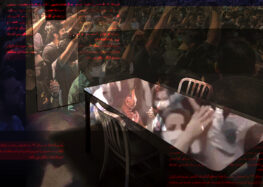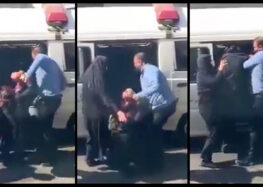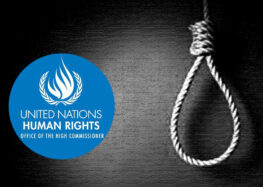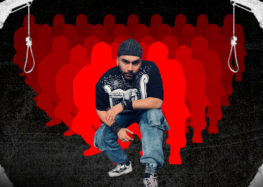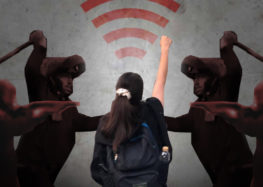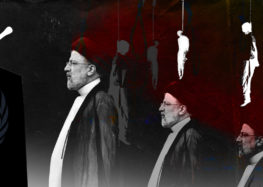Iran Rights Lawyer: Judicial Process is a “Means to Settle Political Scores”
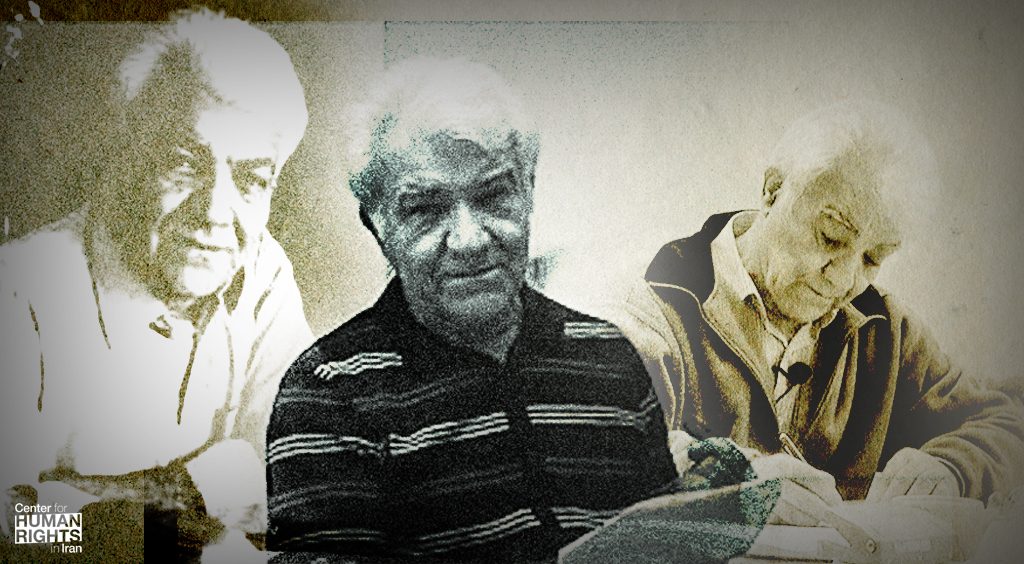 One of the few remaining defense lawyers in Iran willing to take on human rights cases, Nasser Zarafshan is an expert at navigating the Islamic Republic’s judicial system, which criminalizes dissent and imprisons lawyers like Zarafshan for doing their job.
One of the few remaining defense lawyers in Iran willing to take on human rights cases, Nasser Zarafshan is an expert at navigating the Islamic Republic’s judicial system, which criminalizes dissent and imprisons lawyers like Zarafshan for doing their job.
Usually tried under trumped-up “national security” charges, his cases often involve individuals who’ve been targeted by the state’s sprawling security establishment for publicly criticizing the government. In an interview with the Center for Human Rights in Iran (CHRI), Zarafshan spoke about these cases with deep frustration because it’s state security agencies—not the rule of law—that dictate their outcomes.
In the Islamic Republic, those detained under trumped-up national security charges are guilty until proven innocent, Zarafshan told CHRI in the interview that was translated to English from Persian. Intelligence agents carry out the arrests and fabricate the charges and the “judicial process becomes a means to settle political scores.”
Zarafshan is currently representing Farzaneh Zilabi, a lawyer prosecuted under national security charges for defending striking sugar mill workers. Lawyers like Zilabi who operate independently from the state and who choose to represent activists and dissidents are under constant threat of imprisonment and torture in Iran.
As of November 2021, at least five defense lawyers had confirmed prison sentences in the country based on false charges. Of these, Mohammad Najafi and Soheila Hejab are still in prison. Nasrin Sotoudeh is temporarily out of prison on sick leave. Giti Pourfazel and Payam Derafshan are free on parole.
Another lawyer representing laborers, Mohammad Hadi Erfanian-Kaseb, has been tried and sentenced to prison on sham charges, but like Zilabi is currently out of prison as both their sentences have not yet been finalized on appeal.
Meanwhile, three other human rights lawyers, Arash Keykhosravi, Mostafa Nili, and Mohammad Reza Faghihi, are awaiting trial on trumped-up charges because they tried to sue the government for its failed COVID-19 response. Of the three, only Mohammad Reza Faghihi is out of jail on bail, and the other two are still in detention.
In the following interview, which has been edited for length and clarity, Zarafshan discussed the difficulty of representing a fellow human rights lawyer in a judicial system where judges take orders from intelligence agents.
CHRI: What is the status of Farzaneh Zilabi’s case?
Zarafshan: To speak solely in legal terms about the judicial process in this case is a waste of time. From a legal point of view, the process in this case isn’t any different from a mountain of other political cases. In these kinds of cases, usually everything is done in opposition to the process prescribed by law, meaning that the judicial investigators don’t serve the judiciary within the law. Rather, they rule the judiciary. They order arrests, make up false charges and in the end dictate the verdicts. Frankly, in these kinds of cases the courts are only acting like rubber-stamp machines. That’s why I don’t like talking about when the trial began or the indictment and such, because we would only be fooling ourselves.
CHRI: Could you provide examples of such cases?
Zarafshan: These cases are devoid of “the material element of a crime.” For instance, in a murder case, you have an autopsy report, because someone has been killed. Or in a bribery case, handling money initiates the judicial process. Or in an assault case, you have the victim, the assailant, or the assault or murder weapon. Or in drug cases, there are transactions or consumption of some kind. In all these cases we have material elements that relate to a crime. Basically, that’s what’s missing in these so-called “security” cases. In reality, they arrest anyone they want and throw heavy charges at them. In other words, the judicial process becomes a means to settle political scores.
CHRI: In Zilabi’s words, the case against her is retaliation for defending the Haft Tappeh sugar mill workers and labor activists. How would you describe the judiciary’s action against her?
Zarafshan: Zilabi’s “crime” is defending the Haft Tappeh workers. She had been repeatedly told by various centers of power, and not just the judicial branch, to “step away from these cases.” Nevertheless, she has stood her ground and is continuing her work.
My issue is that the independence of the judicial system is a false perception. Nothing will be achieved if we don’t pull the cotton out of our ears. It is a mistake to believe that the judicial system can function independently [from the state], especially in regards to public rights when you have the centers of power versus the masses. In these situations, the violations and assaults are committed against the weaker side; in other words, by the state against the people. When the people cannot challenge power, the state abuses power.
We have a false notion—based on Montesquieu’s widely-promoted ideas—that there is a judiciary here, independent of the state, that can issue judgements that would correct the wrongs of the ruling establishment. This is completely false. The judiciary is part of the state. It’s the same everywhere in the world, not just in Iran.
Look anywhere in the world and you will see a pyramid with the top officials appointed by the center of power and workers whose jobs, promotions, expulsions and everything else depend on those at the top of the pyramid. It would be naive to think such a system can make impartial and independent judgements on violations by the state against the people. Centuries have gone by since Montesquieu’s ideas emerged—they are now largely outdated. Logical people laugh at his ideas. Unfortunately, the liberal media constantly promote these concepts but is there really an independent judiciary in the world?
CHRI: The security and judicial establishment have a long history of confronting labor activists but in Zilabi’s case, we’ve seen some new tactics. How different or unprecedented are they?
Zarafshan: Indeed, for a long time, individuals who had tried to sympathize with or defend labor struggles had been confronted by the state. However, one thing that is unprecedented in this case is the application of Paragraph C of Article 247 of the Code of Criminal Procedure, which they added to the law in 2013. It states that the investigator can issue an order “prohibiting work related to the crime committed.” The paragraph refers to the “crime committed” but it’s premature to talk about a crime when the case is in the investigation stage. The court must decide if a crime was committed or not. The suspect could be found guilty or innocent.
In addition to the fundamental flaw in Article 247, the judicial authorities have misinterpreted Paragraph C in Zilabi’s case in order to suspend her license to practice law. In other words, her legal services were deemed to be connected to the “crime committed.” Of course, we objected to this order and it was annulled by the Criminal Court.
Such interpretations of the law can kill the legal profession and end lawyers’ independence because the Sword of Damocles would always hang over their head in the course of their professional duties and could end their career if they say or do anything out of line. Even if the law gives such an authority to the courts, it would be wrong to associate the “committed crime” to the lawyer’s work on the case. It would be a death sentence for the legal profession if they decide to muzzle lawyers by charging them with “activities connected to the crime.”
Resorting to Article 247 in this case was something new in the judicial process. But it was no surprise that Zilabi nevertheless stepped up to defend the rights of the working class rather than the rich and powerful.
CHRI: On the one hand, there are the worsening economic and social crises facing the people, particularly the greater labor community in Iran, and on the other the intensified security pressures on lawyers and activists. How will this climate impact labor protests?
Zarafshan: The fate of the labor movement isn’t decided by whether lawyers or activists show solidarity with the working class. The fate of the labor movement, as well as future social developments, are decided by economic and social conditions and the outlook tells us that the working class’s ability to make a living is going to get worse day by day and so are class differences.
With the deplorable conditions we see every day, it’s natural to expect the labor movement to intensify protests. The fate of labor protests is not dependent on this or that person’s resistance or struggle or rounding up and arresting people. It never has been.
How I wish the bullies of history would learn these things from their own fate. You cannot change the economic conditions in society with police work or by arresting and jailing people. When there’s oppression, when people have nothing, when there are social gaps, there will also be resistance. The resistance will find its path and become organized. When we are analyzing social movements and developments, we have to consider those factors, not the way the state confronts individuals.
CHRI: As judicial actions against lawyers and civil rights activists intensify, such as the recent arrests of those who were seeking to sue state authorities for their disastrous pandemic response, what are the prospects for the legal profession and civil activism in Iran?
Zarafshan: Civil activism outside of class struggle is meaningless. If some people want to look at these issues in a different way, they would be following the same views repeated in the right-wing and liberal media night and day, and those have no impact anywhere. Civil activities become meaningful within the framework of class struggle.
I love my dear colleagues who wanted to prepare a lawsuit against the authorities in regards to the way the pandemic was managed, but I think it was useless. We have to take into consideration the different conditions dominating society. For a group to sue the authorities and make them accountable for their actions toward the pandemic gives the impression that these friends are living on planet Mars.
I spoke about this to a few of them who were out of jail. In my opinion, the issue is very clear. The shortcomings regarding the coronavirus and the health and medical situation we are witnessing are not because of “incompetence” or “negligence” or such. There are mafia groups with vast economic interests tied to power. Each aspect of social and political life in today’s Iran is managed by one of the mafia groups and all of them have ties to ruling leaders.
We shouldn’t fool ourselves in this situation, nor do we have the right to deceive others. We aren’t in a situation where we can sue the ruling authorities. My dear colleagues who have paid a heavy price for their action should be asked this question: Forty something years after the revolution, who do you want to sue, and how? This shows you are either unaware of what’s going on behind the scenes or don’t know how to carry out the struggle.
CHRI: How do you imagine the future of the legal profession in Iran?
Zarafshan: When we are talking about lawyers, we are in fact referring to a type of profession and like many other professions, the future depends on Iran’s political situation. Unfortunately, we are not going to see a different or better situation as long as the current limitations persist in the political arena; not until this rock is moved.
Read this interview in Persian

